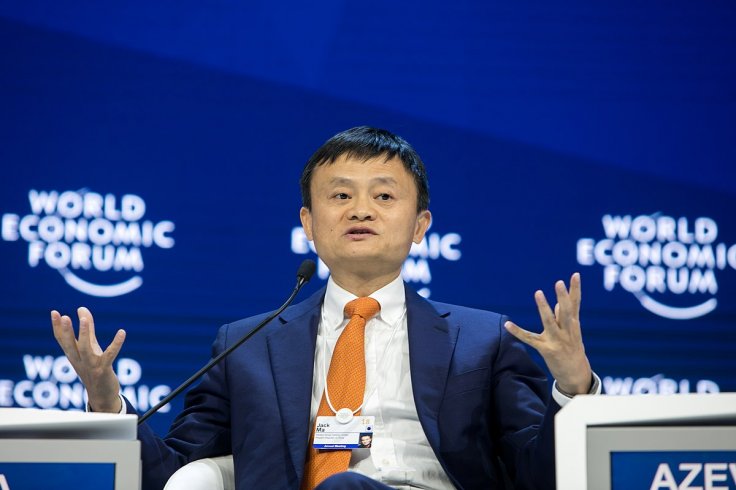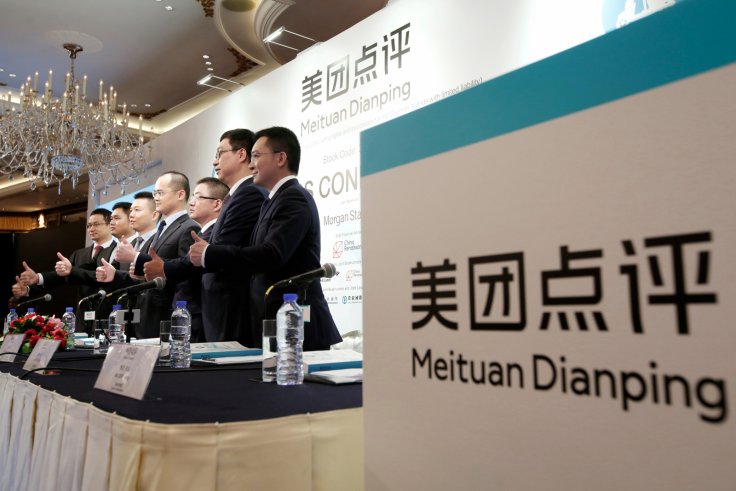China's relentless crackdown on its technology industry has led to whopping value erosion at a clutch of leading tech behemoths. According to data from Goldman Sachs, major Chinese tech companies listed overseas have lost more than $1 trillion in value since the start of February.
Leading the pack is technology pioneer Tencent, which has lost more than $100 billion from its market value in the last two days, making it the world's biggest stock loser in July.
Pony Ma Company Dives 23% on Single Day
On Wednesday alone, the company founded by Pony Ma nosedived 23 percent. According to Bloomberg, the company lost about $170 billion in market value during the month, marking 'fastest evaporation of shareholder wealth worldwide during this period'.

There were reports in March that the Chinese government was targeting billionaire tech entrepreneur Pony Ma over alleged anti-trust violations. The founder and CEO of technology giant Tencent Holding had apparently come under the scrutiny of the China Communist Party (CCP) government after a similar move targeted Alibaba founder Jack Ma in late 2020.
Beijing's antitrust watchdogs were reportedly looking into the possibility of forcing Tencent to overhaul its fintech division and bring its operations under a holding company.
Hunting Mammoth Corporations
Of late, China has been keenly taming the mammoth corporations like Alibaba and Tencent as regulators became increasingly concerned about the potential risks these corporations raise for the country's data security, financial stability and competitiveness.
Tencent owns China's mammoth messaging service WeChat besides owning a host of internet businesses, financial services companies and gaming products.

This week, Tencent was hit by another regulatory order under which the tech giant was to scrap its move to acquire music streaming player China Music Corporation.
9 Out of 10 Top Losers are Chinese Companies
According to Bloomberg, nine of the top 10 losers in shareholder value in July are Chinese companies. The other prominent losers apart from Tencent are Meituan and Alibaba Group.
These three giants alone saw the erosion of a whopping $237 billion in shareholder wealth in the last 48 hours alone.
Tencent's Pony Ma and Alibaba's Jack Ma have been the high profile victims of the regulatory crackdown that gave clear signs of the Chinese government's intent to bring the tech giants in line.

The crackdown on Jack Ma and rumors of his disappearance were major stories of 2020. Ma has been in the eye of a storm ever since he criticized Chinese President Xi Jinping and questioned the regulatory practices in the country last week. His fortunes started waning after he criticized President Xi Jinping's regulatory policies last year. Xi Jinping had said in October that the plan was to make China a more state-controlled economy based on domestic demand. Ma had obliquely criticized the move, drawing ire from the top echelons of the party-led government.
Alibaba and Jack Ma
By the end of December last year, there were reports that the Chinese government was planning to nationalize Alibaba, Jack Ma's flagship company, as well as Ant Group. In early April, the Chinese government slapped a multi-billion dollar fine on Alibaba. The internet behemoth was hit with a record antitrust fine of $2.84 billion after they found that it had abused its market dominance.
It was Tencent's Pony Ma's turn next to face the China regulators ire. In early March, Chinese media reported that Pony Ma was planning to forward a proposal to the government seeking tighter governance of the country's internet economy. The proposal was to be submitted at the annual parliamentary meeting, state broadcaster China National Radio (CNR) reported.

After Alibaba and Tencent, Chinese authorities zeroed in on another super-performing tech entity by launching an anti-trust probe in June. The country's market regulator launched the probe against ride-hailing behemoth Didi Chuxing ahead of its planned IPO.
The State Administration for Market Regulation (SAMR) said it was probing whether Didi squeezed out smaller rivals by employing unfair practices.








